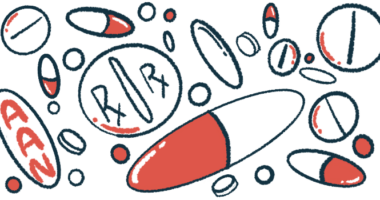Phase 2 trial of lithium formulation for Alzheimer’s now complete
Results from AL001 study expected in June, developer Alzamend says

Alzamend Neuro has completed the clinical portion of a Phase 2 trial testing AL001, an investigational formulation of lithium that the company is developing to treat Alzheimer’s disease and other disorders.
Data from the trial now will be collected and analyzed. Top-line results are expected by this summer, according to Alzamend.
“We look forward to reporting topline data in June 2023 and further advancing clinical development of this promising potential therapeutic,” Stephan Jackman, Alzamend’s CEO, said in a company press release.
Lithium has for many years been used as a mood stabilizer to treat bipolar disorder, which is characterized by periods of extreme low energy and mood — so-called depressive episodes — and separate periods of extreme high energy and mood, known as manic episodes.
It’s not known exactly how lithium works in the brain. Data suggest it may affect the activity of nerve cells, but it’s unclear how this leads to mood-stabilizing effects. Nonetheless, lithium’s effects for helping to regulate mood in bipolar disorder are well established, and preclinical data suggest it also may offer benefits in Alzheimer’s and other disorders.
A notable limitation of lithium’s use as a medication is that it has a fairly narrow therapeutic index — in other words, there’s a fairly small difference between a dose that can be beneficial therapeutically and a dose that can cause toxic effects.
AL001 is a novel formulation of lithium that, according to Alzamend, may allow the medication to be effectively delivered at lower doses compared with currently available products. The therapy contains lithium in a cocrystal alongside organic molecules, namely L-proline and salicylate.
“We strongly believe that AL001’s patented ionic cocrystal technology could potentially provide clinicians with a major improvement over current lithium-based treatments and may constitute a means of treating over 40 million [people in the U.S.] suffering from Alzheimer’s, bipolar disorder, MDD [major depressive disorder] and PTSD,” or post-traumatic stress disorder, Jackman said.
We look forward to reporting top-line data in June 2023 and further advancing clinical development of this promising potential therapeutic.
Alzamend is running a Phase 1/2 trial (NCT05363293) to evaluate the safety and pharmacological properties of AL001 in people with Alzheimer’s disease, as well as healthy volunteers.
Earlier data from the trial’s Phase 1 portion suggested that AL001 was generally well tolerated. It also showed that a 150 mg dose of the experimental therapy potentially could deliver as much lithium into the bloodstream as a 300 mg dose of a currently available lithium product.
In the Phase 2 multiple ascending dose (MAD) portion of the study, participants were given one of several doses of AL001 three times daily for two weeks. The highest tested dose will be equivalent to the dose of lithium now used for the treatment of bipolar disorder. The main goals are to assess safety and determine the highest dose that can be given without unacceptable side effects.






